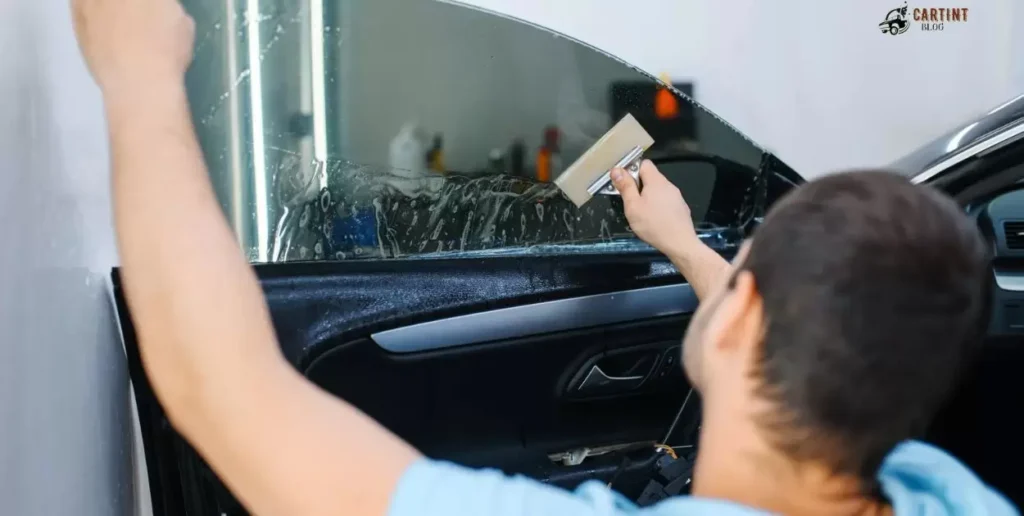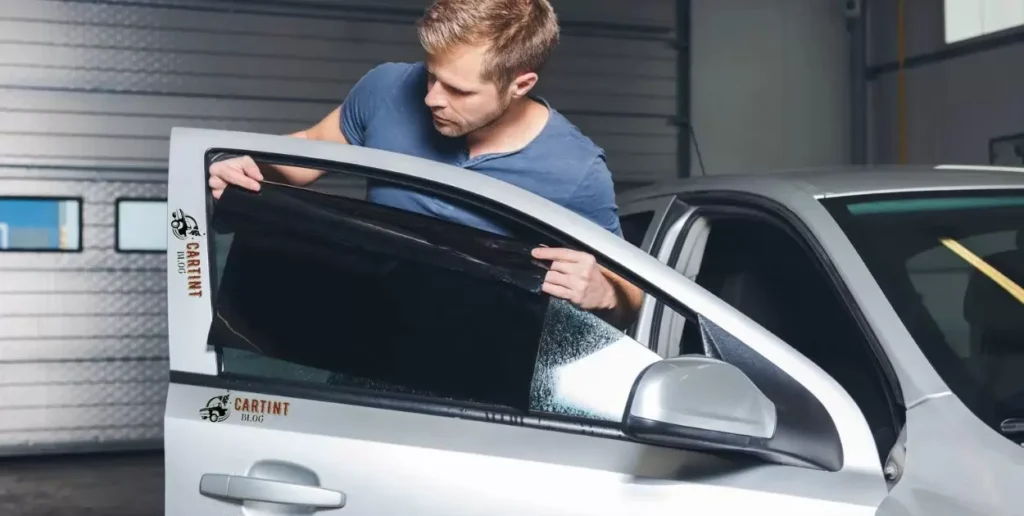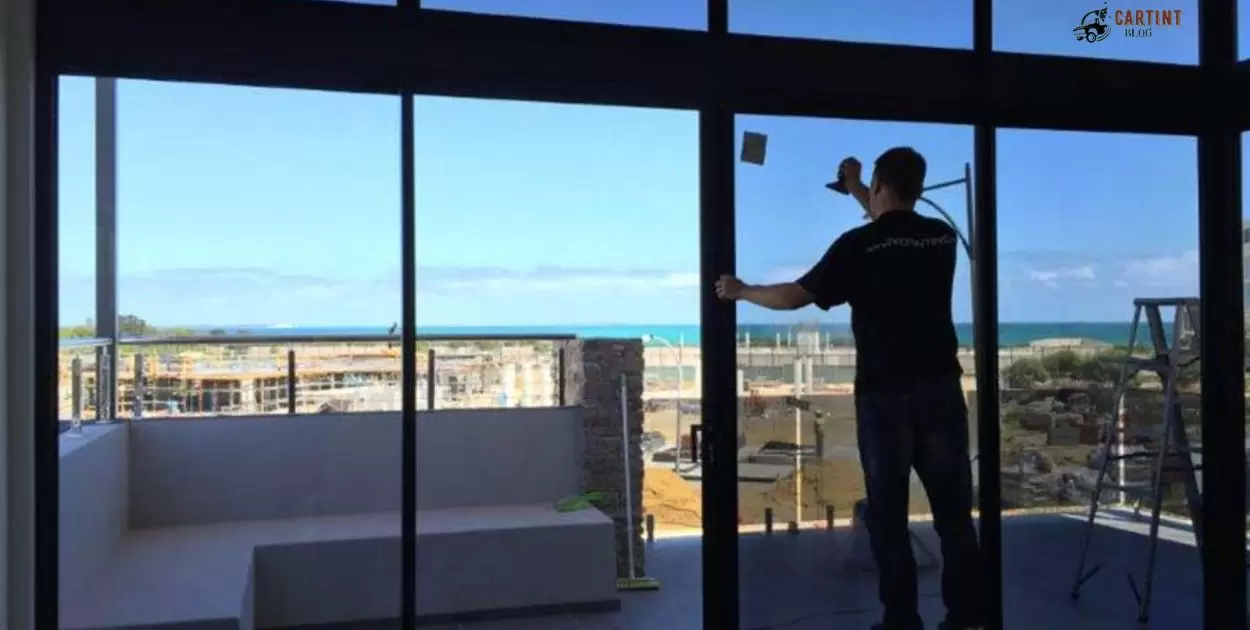Can You Put Car Tint On House Windows refers to the application of automotive window tint on residential windows, aiming to enhance privacy and protect against UV rays.
Can You Put Car Tint On House Windows? Consider the potential benefits—increased energy efficiency, enhanced privacy, and a sleek aesthetic for your home.
Putting Car Tint On House Windows involves choosing the right film, understanding local regulations, and ensuring compliance with building codes for a balance between aesthetics and legality.
Benefits of Tinting House Windows
Tinting house windows offers advantages like saving energy and reducing costs. It enhances privacy, making your home a more comfortable and secure space. The tint acts as a shield against harmful UV rays, protecting furniture from fading.
Comparing car tint to residential window tint, you’ll find differences in transparency and installation methods. It’s crucial to consider the durability and maintenance aspects, along with the overall cost. Residential window tint not only adds to the aesthetics but also increases home value.
Energy Efficiency and Cost Savings
Adding car tint to house windows can make your home more energy-efficient. The tint acts as a barrier, reducing heat from the sun and lowering the need for constant cooling, saving on energy bills. It’s a simple, cost-effective way to make your living space more comfortable while cutting down on expenses.
Besides energy efficiency, putting car tint on house windows provides an additional layer of insulation. This insulation helps retain heat during colder seasons, further contributing to cost savings on heating. Inexpensive and easy to install, window tint offers a practical solution for homeowners looking to enhance energy efficiency without breaking the bank.
Enhanced Privacy and Security
Adding car tint to house windows improves privacy, as it limits the view into your home from the outside. This means you can enjoy your personal space without worrying about prying eyes. It’s a simple and effective way to enhance security, making it more difficult for potential intruders to see inside your home.
When you put car tint on house windows, you create a barrier that deters burglars and provides an added layer of protection. This added privacy measure is a practical and affordable solution for homeowners looking to enhance the security of their living spaces without complicated installations or high costs.
UV Protection and Furniture Preservation
UV protection for house windows is crucial. Harmful UV rays can damage furniture, flooring, and decor over time. Tinting your windows helps prevent this damage, keeping your home’s interior looking new for longer.
Preserving furniture is easier with window tint. The film blocks UV rays, reducing fading and wear. It’s a simple and effective way to maintain the longevity and vibrancy of your home furnishings.
Aesthetics and Home Value
Window tinting can make your home look cool and stylish. The tint adds a touch of modernity to the windows, creating a sleek and appealing appearance. Many homeowners believe that this simple upgrade not only makes their homes more attractive but also increases the overall value of their property.
When you add tint to your house windows, it’s like giving them a fashionable makeover. This aesthetic improvement can catch the eye of potential buyers, boosting the market value of your home. Enhancing your home’s appearance through window tinting is a straightforward way to make it more visually appealing and potentially more valuable in the real estate market.
Comparing Car Tint and Residential Window Tint
Car tint and residential window tint are different. Car tint is for cars, and residential window tint is for homes. Car tint is often darker, providing more privacy, while residential window tint aims for a balance between privacy and natural light.
When comparing them, consider transparency and installation. Car tint varies in darkness levels, affecting visibility. Residential window tint is installed to enhance privacy without compromising the view, making it suitable for homes. Understanding these differences helps in choosing the right tint for your specific needs.
Film Types and Transparency
- Film Types: Window tint comes in various types, each offering different features and benefits.
- Transparency Levels: Understanding transparency is crucial, ranging from darker tints for increased privacy to lighter options that maintain a clear view.
- Reflective Films: Some films reflect light, providing a mirrored effect, while others absorb light for a subtler appearance.
- UV Blocking: Consider films that block harmful UV rays while allowing visible light to pass through, balancing protection and visibility.
Installation Techniques and Challenges
Installing car tint on house windows requires careful consideration of techniques and potential challenges. Homeowners often opt for DIY methods, but professional installation ensures better results.
Challenges may include ensuring proper adhesion, avoiding air bubbles, and achieving an even application. Professional installers possess the expertise to overcome these challenges, providing a seamless and effective window tint installation for homes.
Long-Term Durability and Maintenance
Car tint on house windows needs attention for long-term durability. Regular maintenance, such as cleaning with mild solutions, ensures the film stays effective. Be proactive in preventing scratches, as they can impact both the look and lifespan of the tint. Consider these simple steps to keep your window tint intact and functioning well over time.
Maintaining car tint on house windows is straightforward. Wipe the surface gently with a soft cloth and avoid abrasive materials. Simple care measures can extend the life of the tint, preserving its functionality and appearance for the long term. Regular, gentle upkeep is the key to ensuring your investment in window tinting remains beneficial over the years.
Cost Considerations
Considering the financial aspects of window tinting is crucial for informed decision-making. The table below outlines the key cost considerations associated with putting car tint on house windows.
| Cost Factor | Description |
| Window Film Type | Prices vary based on the type of film, such as dyed, metalized, or ceramic. |
| Installation Cost | Professional installation may incur additional charges; DIY options are also available. |
| Long-Term Maintenance | Factor in potential maintenance costs for preserving tint effectiveness over time. |
| Legal Compliance | Costs may arise from obtaining necessary permits or licenses for residential window tinting. |
Consider these factors to estimate the overall cost of putting car tint on house windows, ensuring alignment with your budget and preferences.
Can You Legally Use Car Tint on House Windows?
Applying car tint to house windows is a common question. People want to know if it’s legal and what benefits it brings. Let’s explore the legality and advantages of using car tint on your home windows.

Using car tint on house windows is a choice many consider for privacy and style. Understanding local laws and regulations is crucial. Checking for any needed permits ensures you can enjoy the benefits without legal concerns.
Addressing Common Misconceptions
Many people wonder if you can use car tint on house windows. Contrary to some beliefs, it’s a common practice with potential benefits for energy efficiency and privacy. Let’s explore the facts and dispel any myths around putting car tint on house windows.
One common misconception is that it’s illegal to use car tint on residential windows. In reality, legality varies, and understanding local regulations is crucial. Additionally, some believe that tinting is only for aesthetics, but it also serves practical purposes like UV protection and reducing glare.
Navigating Legal Gray Areas
Exploring legal gray areas in window tinting means understanding unclear regulations. Homeowners often face challenges when seeking clarity on whether applying car tint on house windows complies with zoning laws or building codes. Navigating these uncertainties requires careful consideration of local regulations and proactive measures to stay within legal boundaries while enhancing your home’s aesthetics.
Finding a straightforward answer about the permissibility of car tint on house windows can be elusive due to varying interpretations of zoning laws. In these situations, homeowners must proactively seek information from local authorities, ensuring that their window tinting endeavors align with existing regulations for a hassle-free and legally sound home improvement project.
Future Trends and Developments in Window Tinting
Anticipating the evolution of window tinting, future trends indicate a growing emphasis on smart tinting technologies, offering dynamic control over transparency. The table below highlights key areas of innovation and development in the field of window tinting.
| Trend | Description |
| Smart Tinting Solutions | Integration with smart home systems, allowing users to control tint levels remotely for enhanced privacy and energy efficiency. |
| Energy-Efficient Nanomaterials | Advancements in nanotechnology contributing to the development of window films with improved energy efficiency and UV protection properties. |
| Privacy and Security Films | Enhanced privacy and security features, including films with privacy patterns and improved resistance against break-ins. |
| Sustainable and Eco-Friendly Films | Growing focus on environmentally friendly materials, offering sustainable options for those seeking greener alternatives in window tinting. |
| Multi-Functional Tinting for Smart Cities | Window films designed to contribute to the overall efficiency of smart city infrastructures, integrating with smart building systems and urban planning. |
The future of window tinting promises a blend of technology and sustainability, providing consumers with innovative solutions that go beyond traditional tinting applications.
Difference between car tint and flat window tint
- Car tint is designed for automobiles, reducing glare and protecting against UV rays.
- Flat window tint, used in homes and buildings, is thicker and serves a different purpose.
- Both provide privacy and UV protection, but car tint is tailored for vehicle windows, while flat window tint is for residential and commercial use.
- Understanding the application and thickness differences is crucial when deciding on the right tint for your specific needs.
Why can’t you use car tint on house windows?
Using car tint on house windows isn’t advisable due to differences in window size and structure. Automotive window tint is designed for smaller, curved car windows, making it challenging to apply smoothly on larger, flat residential windows.

The thickness of car tint may pose challenges in adherence to house windows, potentially leading to an uneven application. Additionally, house windows often require different levels of tint for optimal functionality and aesthetics, which car tint may not accommodate effectively.
Is home window tint same as car?
Is home window tint the same as car tint? No, they’re different. Car tint is designed for smaller windows, offering privacy and UV protection. Home window tint is larger and often focuses on energy efficiency and glare reduction, tailored for residential needs.
Home window tint differs from car tint. Car tint prioritizes privacy and UV protection on smaller windows, while home window tint, designed for larger spaces, aims at energy efficiency and reducing glare to enhance comfort in residential settings.
Can you see through a house window with tint on it?
Applying tint to a house window makes it harder for people outside to see in. It adds privacy and reduces glare from sunlight, creating a more comfortable living space.
If you’re inside a house with tinted windows, you can see outside clearly, but others can’t easily see what’s happening inside. Tinted windows strike a balance between enjoying natural light and maintaining your personal space.
What happens if you tint the outside of house windows?
Tinting the outside of house windows adds a layer of film to the external glass. This film shields your home from excess sunlight, reducing glare and providing privacy. The process is straightforward, enhancing the exterior appearance while offering practical benefits like improved energy efficiency and UV protection for your interiors.
When you tint the outside of house windows, it acts as a barrier against heat and harmful UV rays. This helps maintain a comfortable indoor temperature and protects your furniture from sun damage. Additionally, the exterior tinting minimizes the need for heavy curtains or blinds, creating a sleek and modern look for your home.
Can auto film be used on flat glass installation
Yes, you can use auto film on flat glass installations like house windows. Auto film, designed for cars, offers benefits such as enhanced privacy and UV protection when applied to residential windows.
The process involves selecting the right auto film, ensuring it adheres properly to flat glass surfaces, and complying with local regulations. It’s a simple way to bring the advantages of automotive window tinting to your home, improving comfort and protection.
Is tinting outside the window glass and not inside possible?
Can you tint the outside of your window instead of the inside? Yes, tinting can be applied on the exterior, offering UV protection and privacy. This method involves a protective film adhered to the outside surface, giving your windows a stylish look while blocking harmful sunlight.
Tinting outside windows is a viable option for those seeking a protective layer without altering interior visibility. It’s a straightforward process, enhancing both aesthetics and functionality by providing a shield against glare and maintaining a cool interior temperature.
Can you see through tinted house windows at night?
Tinted house windows can offer privacy during the day, making it challenging for people outside to see in. At night, however, the dynamics change. Tinted windows may become less effective in blocking views, especially with interior lights on, allowing for more visibility from the outside.
When considering tinted house windows at night, it’s crucial to strike a balance between privacy and aesthetics. While they can still provide some level of obscurity, factors like interior lighting and the darkness outside can affect the overall visibility through tinted windows during nighttime.
Can you use soapy water to tint windows?
Yes, you can use soapy water to tint windows easily. Start by mixing a few drops of dish soap with water in a spray bottle. Spray the mixture on the window before applying the tint to make the process smoother and avoid bubbles.
Using soapy water helps the tint adhere better to the window surface. It acts as a lubricant, allowing you to position the tint precisely and smooth out any air bubbles during installation. This straightforward method makes window tinting more accessible and ensures a clean application.
Does window tinting cool the house?
Window tinting can cool your house by blocking the sun’s heat and reducing glare. The tinted film acts like sunglasses for your windows, keeping your home more comfortable on hot days. It’s a practical and affordable way to make your living space cooler without relying heavily on air conditioning.
With window tinting, you control the amount of sunlight entering your home, preventing it from turning into an oven during the summer. The tint reflects and absorbs the sun’s rays, helping maintain a pleasant temperature inside. So, if you’re looking for a straightforward way to keep your house cool, window tinting is a practical solution.
FAQ’s
Can I use the same tint on my house windows as on my car?
Yes, you can apply automotive window tint to your house windows, but it’s crucial to consider local regulations and compliance with building codes.
Are there benefits to putting car tint on house windows?
Certainly! Tinting house windows can enhance energy efficiency, improve privacy, and add a stylish touch to your home.
What types of films are suitable for house windows?
Various films are suitable, including those offering enhanced privacy, UV protection, and energy efficiency. Choose based on your specific needs and preferences.
Do I need a license or permit to tint my house windows?
In many areas, obtaining a permit or license is necessary. Check local regulations to ensure compliance before applying tint to your residential windows.
How does tinting house windows impact home value?
Tinting can contribute positively to home value by improving energy efficiency, security, and aesthetics, but the impact varies based on local real estate trends.
Conclusion
The question Can You Put Car Tint On House Windows? prompts a nuanced exploration of the possibilities and considerations associated with extending automotive window tinting practices to residential spaces. The desire to enhance privacy, improve energy efficiency, and achieve a sleek aesthetic for homes leads to a careful evaluation of legalities, the choice of window films, and compliance with local regulations.
As we navigate the realm of tinted house windows, it becomes evident that the key lies in finding a harmonious balance between the benefits of window tinting and adherence to legal requirements. The process involves not just improving the visual appeal of a home but doing so within the bounds of established regulations, ensuring that the outcome aligns with both personal preferences and legal standards.



